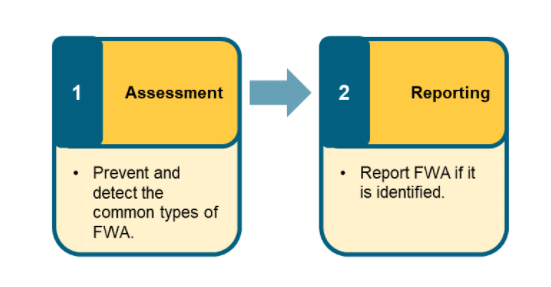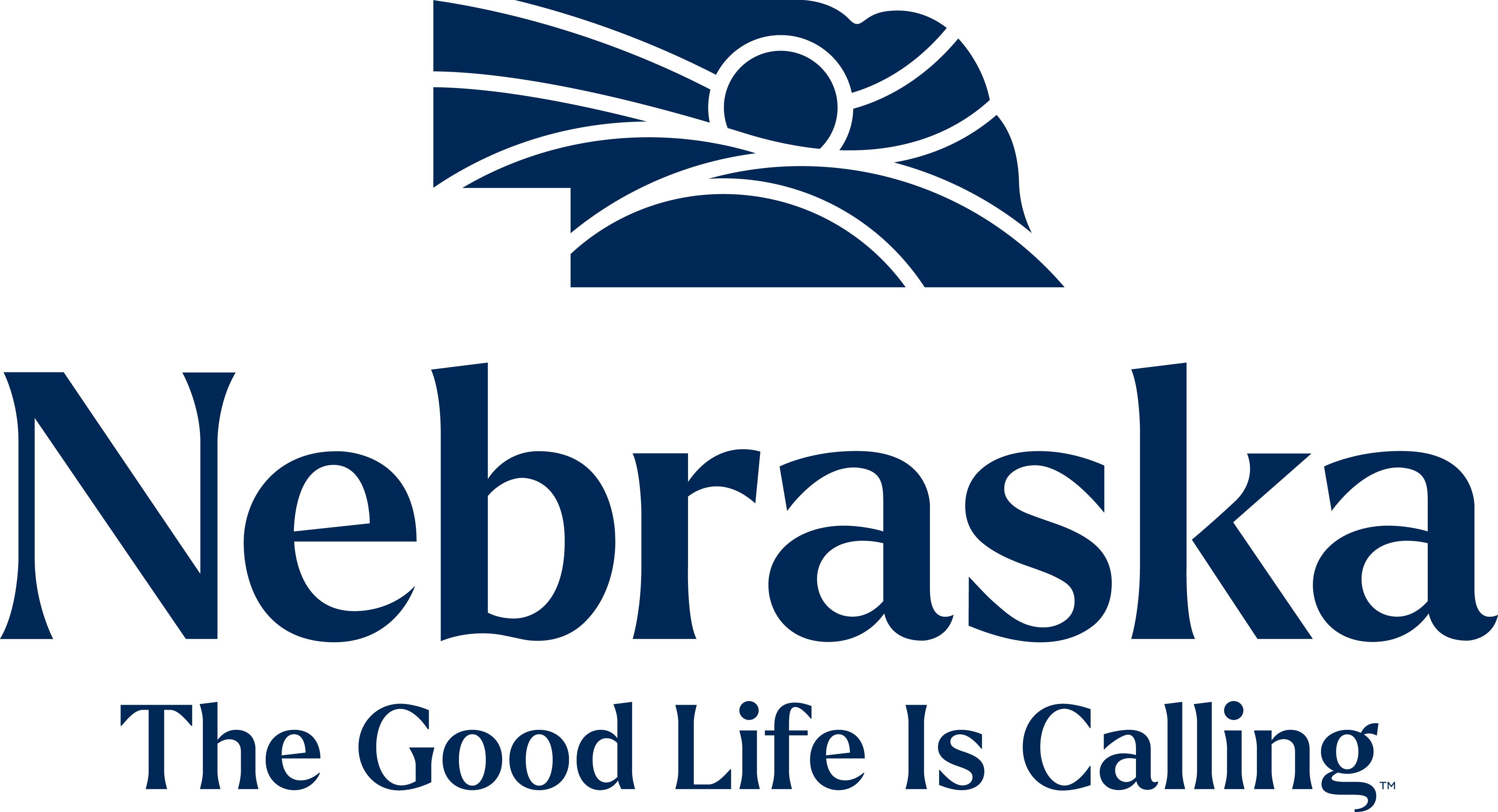Anti-Fraud, Waste, and Abuse

What is Anti-Fraud, Waste, and Abuse?
Pursuant to Federal and State regulations, all Applicants, Subrecipients, Successful Applicants, and other entities managing or participating in the CDBG-DR program must operate in compliance with Chapter 19: Anti-Fraud, Waste & Abuse of the CDBG-DR Manual. FWA addresses responsibilities related to preventing, detecting, reporting, and rectifying incidents of fraud, waste and abuse (FWA).
DED encourages any individual who is aware of or suspects any conduct or activity that may be considered an act of FWA of the CDBG-DR program to report such acts to DED’s Internal Auditor, the Nebraska Auditor of Public Accounts (APA), directly to the Office of Inspector General (OIG) at HUD, or any local or federal law enforcement agency.
As applicable to Certified Administrators for projects, and at the discretion of DED, engaging in FWA, whether or not such activity is a crime, may result in the implementation of the de-certification process without an initial or additional probationary status. Generally, de-certification occurs where an individual fails to properly administer CDBG-DR projects.
Want to Learn More?
Refer to Chapter 19: Anti-Fraud, Waste & Abuse of the CDBG-DR Manual for further guidance related to this cross-cutting requirement.
The State of Nebraska’s Action Plan further articulates requirements and programmatic structures that apply to all CDBG-DR programs.
Roles and Responsibilities
Nebraska Department of Economic and Development (DED)
DED is responsible for preventing, detecting, reporting and rectifying incidents of FWA among other irregularities related to the program. DED has zero tolerance for the commission and/or concealment of acts of FWA. DED will leverage existing investigative resources and corrective actions available to the State of Nebraska to meet HUD requirements. If FWA are identified, DED shall pursue investigation, including taking legal action where warranted. Reported cases under review shall be considered potential FWA until claims are substantiated.
Subrecipients and Successful Applicants
Subrecipients and Successful Applicants are responsible for the day-to-day monitoring of project activities and ethical management practices to ensure there is no FWA within the program, and to report FWA if it is identified, as described in the figure below.

Common Types of Fraud
Embezzlement and Theft
In several HUD programs, administrators and participants may be entrusted with cash or assets and take them for their personal use. There are many ways they may embezzle, from simple to more elaborate methods to conceal the theft.
What To Look For
- Participants taking money from the cash drawer or writing checks to cash;
- Participants falsifying invoices;
- Participants misusing credit cards of the HUD-funded organization;
- Participants stealing rental or laundry receipts;
- Participants falsifying deposits, checks, or other accounts;
- Participants hiring “ghost” employees and converting the payroll checks for their own use;
- Participants writing bonuses to themselves; and
- Participants using staff, materials, or equipment for personal use.
Contracting and Procurement Frauds
There are many variations of embezzlement and theft, contracting and procurement, bribery, kickbacks, bid ridding, conflicts of interest, and identity theft which can involve procurement officials and bidders working alone or in collusion to commit fraud.
What To Look For
-
A false certification of regulatory and statutory compliance or qualifications necessary to obtain a contract;
-
Colluding with others to win a contract using bid rigging, phantom or altered bids, or split bids;
-
Falsifying information on contract proposals;
-
Using Federal funds to purchase items that are not for government use;
-
Billing more than one (1) contract for the same work;
-
Billing for expenses not incurred as part of the contract;
-
Billing for work that was never performed;
-
Falsifying data such as employee credentials, experience, and rates; bonds; and test or inspection results;
-
Abusing change orders;
-
Underbidding to win a contract and colluding with the procurement officer to make up profits through unnecessary change orders;
-
Substituting approved materials with unauthorized products;
-
Misrepresenting a project’s status to continue receiving government funds; or
-
Charging higher rates than those stated or negotiated for in the bid or contract.
Bribery
Bribery is the offering, giving, receiving, or soliciting of anything of value to influence an official act. Bribery is an unethical business transaction where one (1) person, usually the person benefiting from the transaction, is paying for the influence of another.
What To Look For
- Most bribery schemes begin with gifts and favors;
- Be cautious of free entertainment, vacations, travel, conference perks, sports events, parties, home or business repairs, and use of resort facilities;
- Companies submit bids with identical individual line items or lump sums;
- Bids greatly exceed the agency’s estimate of contract value or exceed comparable bids by the same companies in other areas similar in demographics;
- Winning bidder awards subcontracts to one or more of the losing bidders; and
- Last minute alteration of bids after submission.
Kickbacks
A kickback is a type of bribe. A kickback is a collusive agreement where a “cut” of the profit is given to the bribe taker for services rendered. Kickbacks can be in the form of money, credits, gifts, gratuity, services, or anything of value.
What To Look For
-
Paying a kickback is a two-sided financial transaction. The vendor making the illicit payment must divert funds to pay for the bribe; and
-
Payments coded as “fees” for consulting or other services should be scrutinized.
Bid Rigging
Bid rigging is a fraud that involves impeding competitive bidding. Generally, bid rigging involves an agreement to limit competition. These schemes usually occur in the pre-solicitation, solicitation, or evaluation phase of the bidding process.
What To Look For
Pre-Solicitation Red Flags
-
Specifications and statement of work are tailored to a specific product or vendor;
-
Pre-qualification procedures restrict competition;
-
Unnecessary sole source or non-competitive justifications;
-
New vendors added to the qualified list without justification;
-
Projects split into smaller awards to avoid review;
-
Costs of materials are out of line;
-
Established bidding policies and procedures are not being followed; and
-
Materials not being ordered at optimal reorder point.
Solicitation Phase Red Flags
-
Improper communications between purchasers and contractors at trade or professional meetings;
-
Improper social contacts between purchasing agents and contractors;
-
Purchasing officials with business or financial interest in the contractor;
-
Falsification of documents or receipts so that late bids are accepted;
-
Indications of collusion between bidders;
-
Falsification of contractor qualifications, work history, or personnel;
-
An indication of last-minute alteration of bids; and
-
A large gap between the winner’s proposed pricing and losing bidders’ pricing.
Bid Submission or Contract Acceptance Red Flags
-
Winning bidder awards subcontracts to one or more of the losing bidders;
-
Procurement that has been restricted to exclude or hamper any qualified contractor;
-
Improperly accepting late bids;
-
A bidder who always bids last on contracts and consistently wins;
-
Falsification of contractor information, like financial capability, personnel qualifications, and previous performance; and
-
Bids tend to be awarded in a geographic pattern or in a noticeable rotation, such as a particular type of work always being awarded to a particular company.
Conflicts of Interest
A conflict of interest occurs when an employee, manager, or executive has an undisclosed economic or personal interest in a transaction that adversely affects that person’s employer. A criminal conflict occurs when an employee participates substantially in a particular matter where they have a financial interest, if the particular matter will have a direct and predictable effect on that interest.
What To Look For
-
Overly friendly relationship between government employees and contractors such as frequent socialization outside of the work environment;
-
Unexplained increases of business with one (1) contractor or subcontractor;
-
Change orders with a high percentage of original costs;
-
Defining statements of work and specifications to fit the products or capabilities of a single contractor;
-
Government personnel or their families acquiring stock or a financial interest in a contractor or subcontractor;
-
Government personnel discussing possible employment with a contractor or subcontractor for themselves or a family member; and
-
Employment of family members by a contractor.
Identity Theft
Program administrators and others who steal identities or create false identities to apply for and illegally receive various HUD funded benefits such as rental assistance, mortgages, or block grant program funds.
What To Look For
-
Contractors certified as small or disability-, minority-, woman-, or service-disabled veteran-owned businesses are often given preferential treatment related to contract awards. For this reason, some contractors have been inclined to falsely certify themselves, or obtain legitimate certifications, through invalid means; and
-
Programs have seen various scams in which websites and other social media sites are used to induce the public to send money in order to receive various HUD benefits, grants, or contracts. They sometimes falsely advertise as being government representatives or agents of HUD to promote their scheme further.
Whistleblower Protection
Protects Federal employees and Applicants for employment who lawfully disclose information they reasonably believe evidences a violation of law, rule, or regulation; gross mismanagement; a gross waste of funds; an abuse of authority; or a substantial and specific danger to public health evidences.
What To Look For
-
If an employee is discharged, demoted, or otherwise retaliated against for making a protected whistleblower disclosure.
Reporting FWA
Reporting
Any person who suspects, witnesses, or discovers any FWA related to the CDBG-DR Program should report it immediately by any of the means listed below. In addition to the contacts listed below, you may contact HUD’s Office of Inspector General Fraud Hotline via phone 1-800-347-3735 or via email at hotline@hudoig.gov. All allegations and complaints received will be treated with absolute confidentiality.
To the DED Internal Auditor:
Online or Anonymous Email: Fill out the Contact Form available here: https://opportunity.nebraska.gov/contact/#form
Phone: 800-426-6505
Postal Mail:
Nebraska Department of Economic Development
Attn: Internal Auditor
245 Fallbrook Blvd, Suite 002Lincoln, NE 68521
In Person:
Nebraska Department of Economic Development
245 Fallbrook Blvd, Suite 002Lincoln, NE 68521
To the Nebraska APA
Online or Anonymous Email: Fill out the FWA Submission Form, available at the Nebraska APA’s website: https://auditors.nebraska.gov/About_Us/SAE_E-Mail.html
Phone: Nebraska APA Confidential Hotline at 1-800-842-8348
Postal Mail:
Nebraska Auditor of Public Accounts
State Capitol, Suite 2303
P.O. Box 98917
Lincoln, NE 68509-8917
In Person:
Nebraska Auditor of Public Accounts
State Capitol, Suite 2303
Lincoln, NE 68509-8917
Frequently Asked Questions
Q: Who is responsible for conducting investigations for complaints received by DED?
A: Upon receiving allegations with regards to anyone involved with the CDBG-DR program, including Subrecipients and Successful Applicants, DED’s Internal Auditor has the primary duty of analyzing the complaint. If warranted, DED’s Internal Auditor shall conduct an investigation into the allegations and may seek advice from Human Resources or the Legal Division, if necessary.
Contact Information
Questions and comments regarding CDBG-DR programs should be directed to the State of Nebraska’s Department of Economic Development (DED) via email at ded.cdbgdr@nebraska.gov or by calling (800)-426-6505.

